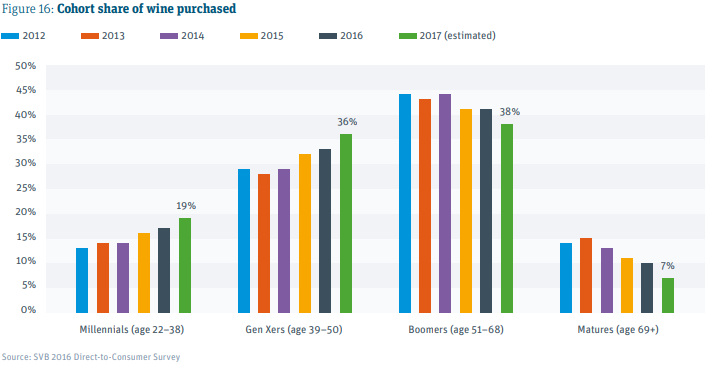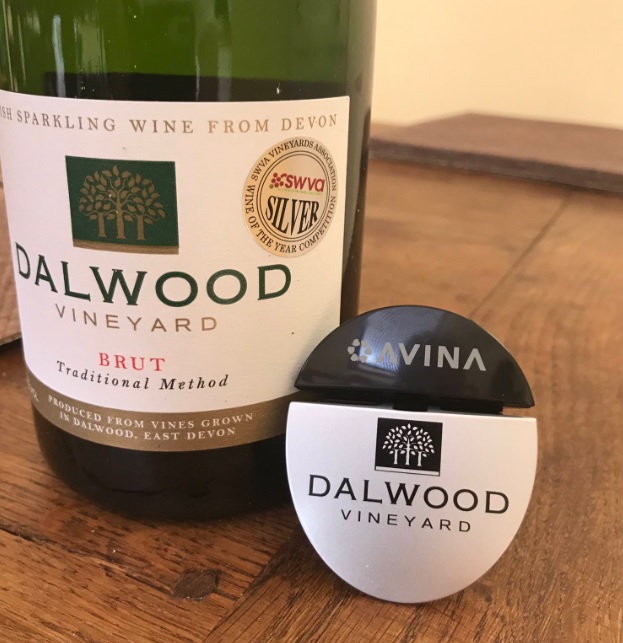Why Branding is Now More Essential Than Ever For Wineries
With the ever ongoing transition in consumer buying behavior from offline channels to online ones many retailers find themselves struggling to keep up. Several reports have shown that businesses who fail to offer their customers a valuable online experience are falling behind. In the winery business, where many are relying on providing an exceptional face-to-face experience in tasting rooms, transitioning to online has proven to be too challenging for most.
“A brand is a company’s most important asset. A company can’t “own” it’s facts. If the company’s facts (speed, price, quality) are superior to the competition, any good competitor will duplicate them or improve on them.”
Just as in any business environment those who fail to adapt are usually the ones left behind and the wine business is no exception to this. While the average number of DTC transactions is in steady decline, the more established wineries are able to raise their average order value due to their strong brand image.
In the 2018 SVB Wine Report research shows consumers are placing more value in the experience and connection with a brand rather than just comparing features such as price. However, when comparing offline and online presentation, only a small percentage of entrepreneurs in the wine industry have implemented a consistent image to consumers over multiple touch points in order to build brand recognition.
One more variable to consider for business owners is the changing landscape of the consumers they are targeting. Now representing 19 percent of the current fine wine consumption the millennials are a presence whose impact has falsely been overestimated by the wine industry. This goes to show the fine wine industry has up until now failed to activate the new generation of consumers.
As the millennial generation is approaching their prime spending era, marketing efforts should be aimed at the preferences that are unique to this new segment of consumers entering the wine market.

Factors that play a key role in this are, amongst others, the wineries online presence as well as the environmental policies of the winery. A study carried out by Sonoma State University students amongst millennials clearly showed that website quality was a significant predictor of increased trust in the winery and perceptions of the quality of the wine.
In a different study carried out by the same researchers data suggested: “consumer perceptions about product quality, consumer trust, consumer perceptions about pricing, and positive expectations for the consequences of the wineries actions undertaking the pro-environmental policies, all have strong, positive relationships with the wineries brand equity.”
Most notable point in this is how a positive feeling towards a wine brand directly impacts perceptions of product quality. This goes to show that in order to influence DTC buying behavior winemakers are best off diverting at least part of their focus to building strong, lasting relationships with their consumers.
Examples of Strong Branding Efforts
While not all wine makers seem to be ready to make a strong impact on their brand equity in 2019 there are some positive outliers to be found. One of those examples is the oldest winery in Napa Valley, Charles Krug, who is staying young in the branding department. In our recent case study done on the brand building efforts by the iconic winemaker we went deeper into what tactics work best for the Krug family.
You can download the full case study right here
Granite Creek Vineyard
One more winemaker that is leveraging the power of brand building and storytelling is the Granite Creek Vineyard. They are ticking many of the boxes when it comes to valuable qualities to have in 2019 and are putting them to good use.
Their brand is centered around the organic nature of their wines, something that will prove to be increasingly important going forward. However, there are many more lessons that can be learned from the Northern Arizona based winemaker that can be applied by wineries that aren’t deploying organic growing operations.
Granite Creek has established a community of wine lovers around their brand by creating their very own wine club (called the ‘Case Club’), hosting tastings, live music shows, and other events. The Case Club builds a connection to the brand, so it is a smart way to improve average customer value and build an audience of fans that can be promoted to over the long term, so it’s also an investment in a profitable future.
Combine this with special Valentines events and it is no surprise the Granite Creek fanbase has grown well into the thousands.

Dalwood Vineyard
Another winery that has been innovative with its branding efforts is Dalwood Vineyard. This UK based, award winning wine maker has found a creative way to both increase the average order value and permanently find its way into people’s homes.
In a time of transition to more digital channels, word of mouth is still the strongest form of marketing available and Dalwood know how important the personal touch is in building brand reputation.
You can read the full case study right here

Actionable Branding Tips for 2019
Focus on the audience – key thing to keep in mind when investing in the story and presence of any brand is the audience you are looking to reach. While it might be tempting to build the brand entirely as you had envisioned it, you run the risk of ending up with a brand that is tailored to just your own preferences. While this could certainly make sense from a hobby perspective, it does not from a business one.
Invest in your online channels – It is now more important than ever to focus on your online channels. A strong website will directly impact the perception prospective customers have about the quality of your products and combined with a well equipped web shop this will be a safe bet for winemakers in 2019.
Provide great customer service – it is important to keep in mind that customers are expecting more from their experience with your brand which means investing in your offline touchpoints as well. Being omnipresent will keep you top of mind with your audience and will help establish your wine making business as a brand to be trusted.
In the end you don’t have to be world famous to be successful, just famous enough with the right group of people. To sum up:
- Invest in your online presence by sharing your story on various channels
- Have a well equipped web shop to avoid being a ‘one hit wonder’
- Make an effort to keep your brand top of mind with your audience
